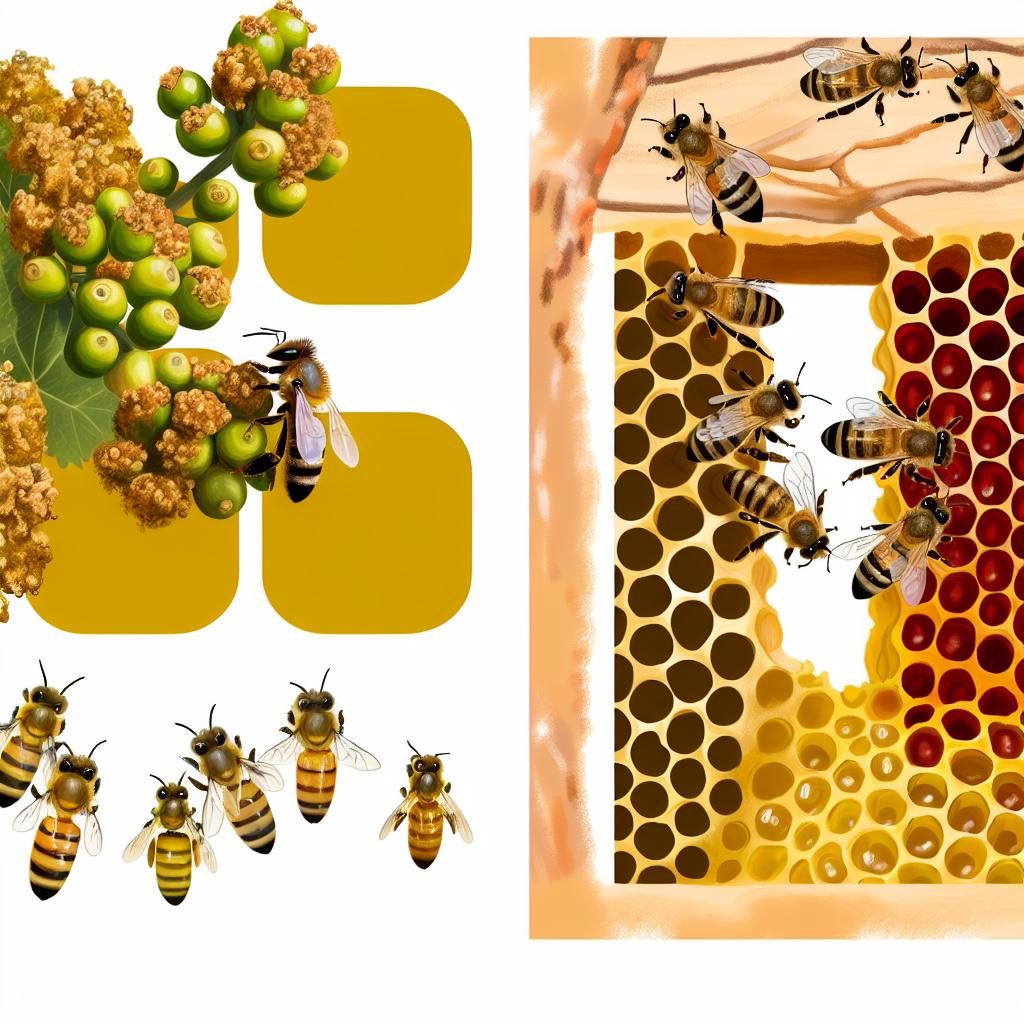
Understanding Propolis
Propolis, an intriguing substance often referred to as bee glue, is crafted by bees to serve a critical function within the hive. This resinous material is primarily utilized as a sealant for closing unwanted spaces in the hive, providing protection against external threats. The use of propolis by bees dates back thousands of years, yet it is only in more recent times that humans have begun to fully recognize its manifold health benefits and potential applications.
Composition of Propolis
Propolis is a remarkably complex mixture comprising various substances that work together to confer its unique properties. At its core, propolis is formed from an amalgamation of resins, beeswax, essential oils, and pollen. It is important to note that the precise composition of propolis can vary considerably, influenced by factors such as geographical location and the plant sources available to the bees. Typically, propolis consists of:
Beeswax: Serving as an essential component, beeswax is integral to the structural integrity of propolis. It ensures the material remains pliable yet durable, allowing it to effectively fulfill its role within the hive.
Plant Resins: Forming the bulk of propolis, plant resins are critical for its function as a protective element. These resins are harvested by bees from various flora, contributing significantly to the unique properties of propolis.
Essential Oils: The inclusion of essential oils not only enhances the antimicrobial properties of propolis but also adds to its aromatic profile, which can be perceived even in its raw form.
Historical Uses of Propolis
Throughout history, propolis has been valued by numerous cultures for its medicinal attributes. In ancient civilizations such as Egypt, Greece, and Rome, propolis was esteemed for its healing potential. It found applications ranging from wound care to the treatment of various ailments, including abscesses and respiratory infections. This historical precedence underscores the long-standing value attributed to propolis in traditional medicine systems across the world.
Modern Applications
In contemporary times, propolis has found its way into a myriad of products, reflecting its multifaceted applications. It is currently available in various forms, such as tinctures, capsules, and ointments, catering to different preferences and needs. Its uses today are diverse and continue to expand as ongoing research sheds light on new possibilities.
Antimicrobial Properties: One of the most studied attributes of propolis is its antimicrobial activity. It has been shown to exhibit efficacy against a spectrum of bacteria, viruses, and fungi, making it a favored ingredient in products like throat sprays and lozenges designed to combat infections and soothe symptoms.
Anti-Inflammatory Effects: The anti-inflammatory properties of propolis have garnered considerable attention in recent years. Research indicates its potential in mitigating inflammation, which holds promise for the treatment of inflammatory conditions such as arthritis and related disorders.
Antioxidant Benefits: Propolis is rich in flavonoids, compounds known for their potent antioxidant properties. This attribute assists in neutralizing harmful free radicals in the body, offering protection against oxidative stress and contributing to overall health and wellness.
Scientific Studies and Findings
A wealth of scientific research has been directed towards exploring the health benefits and therapeutic potential of propolis. These studies have put forth compelling evidence suggesting that propolis may support dental health, enhance wound healing, and boost immune response. Nonetheless, while the findings are promising, it is crucial to emphasize that further extensive human trials are indispensable for confirming these effects with certainty.
To delve deeper into ongoing research, numerous scientific journals are actively publishing studies on the diverse applications of propolis. For those interested in a comprehensive understanding, consulting these scientific publications can provide valuable insights into the evolving narrative surrounding propolis.
In conclusion, propolis boasts a rich history interwoven with both ancient wisdom and modern scientific inquiry. As new research continues to unfold, it is becoming increasingly evident that propolis holds substantial potential in the realm of natural health and wellness. However, given its link to bee allergies, it is imperative for individuals to exercise caution and seek professional medical advice before incorporating propolis into their health regimen. By doing so, they can make informed decisions that align with their health needs while minimizing risks associated with potential allergic reactions.

